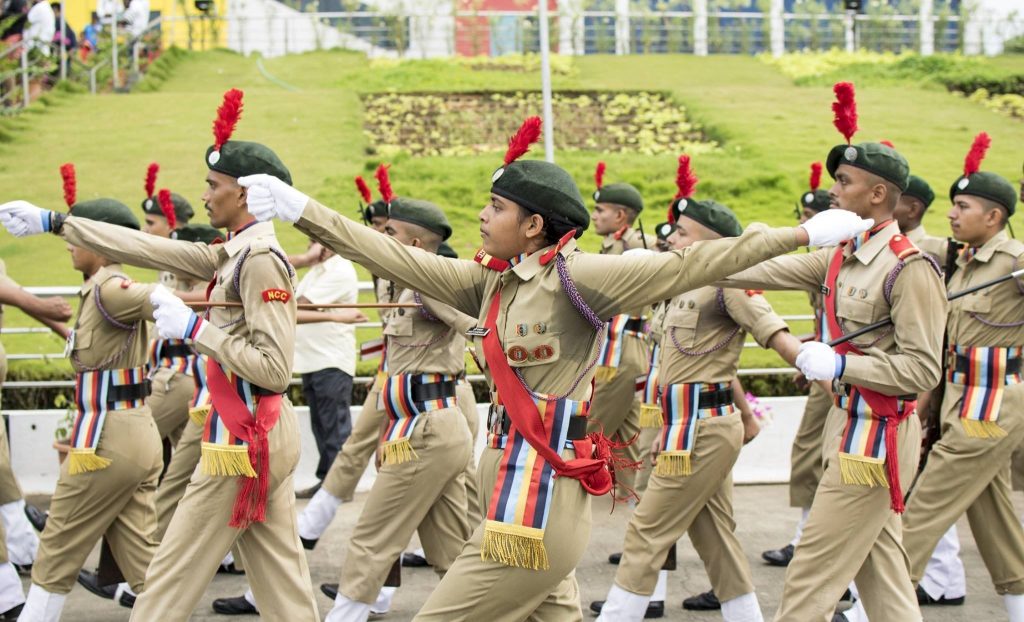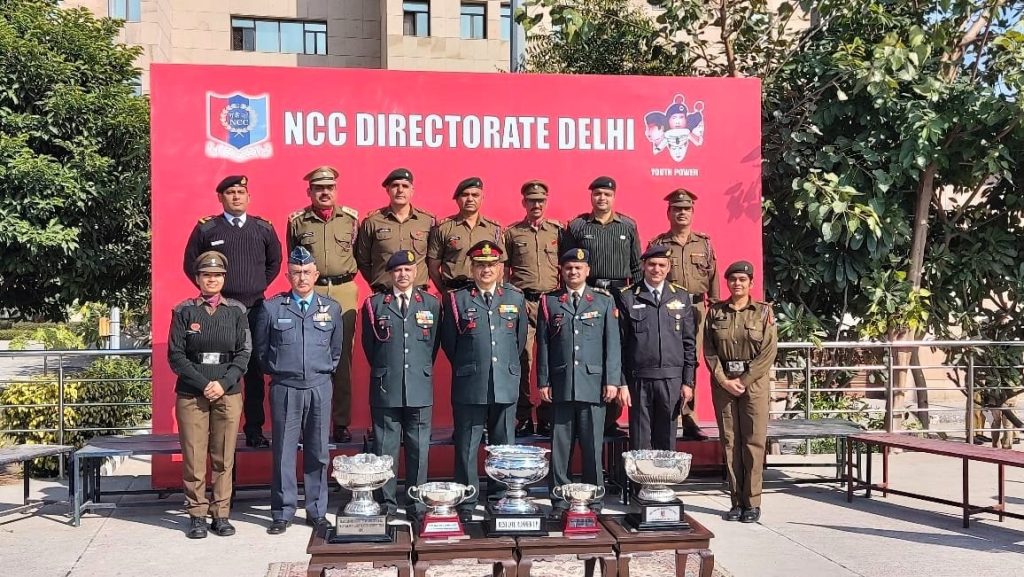The National Cadet Corps (NCC) holds a significant position in India, acting as a crucible for nurturing leadership, discipline, and patriotism among the youth. Established in 1948, the NCC has evolved into a formidable organization that not only instills military values but also fosters character development and a sense of national pride. This comprehensive article explores the history, objectives, and ideologies of the NCC, shedding light on its role in shaping the future leaders of the nation.
Understanding NCC: An Overview
The National Cadet Corps (NCC) is a youth organization affiliated with the Indian Armed Forces, aimed at fostering discipline, leadership, and a spirit of service among young individuals. Headquartered in New Delhi, the NCC welcomes students from schools and colleges across the country, providing them with opportunities for holistic development and nation-building.
NCC Full Form
- Full Form of NCC: National Cadet Corps
- NCC Motto: Unity and Discipline
- NCC Official Website: indiancc.nic.in
History of NCC: Shaping Lives Since 1948
The inception of the NCC can be traced back to 1948 when it was established under the National Cadet Corps Act. It inherited its legacy from the University Officers Training Corps, initiated by the British during the wars of 1965 and 1971. NCC cadets played a crucial supportive role during these conflicts, emphasizing the importance of leadership and officer-like qualities (OLQs) in their training.
The NCC embodies the motto of “Unity and Discipline,” which serves as a guiding principle for its members. It is a non-political organization focused on character building and leadership development through various activities such as military drills, community service, and adventure pursuits. During times of war, NCC cadets may be called upon to assist the armed forces, highlighting their role as the second line of defense.
NCC Organization: Structure and Operations
The NCC operates under the leadership of a Director General, with its headquarters in New Delhi. It is a tri-service organization, encompassing the Army, Navy, and Air Force wings. Across the nation, there are 17 directorates of the NCC, each commanded by Brigadiers or their equivalents. The organization recruits cadets on a voluntary basis, welcoming students who demonstrate camaraderie and a spirit of adventure.
NCC Ideologies: Unity, Discipline, and Beyond
Guided by the principles of “Unity & Discipline,” the NCC aims to foster a sense of cohesion and inclusivity among young individuals. It operates on the core ideologies of obedience, punctuality, hard work, and honesty, instilling values that are essential for personal and national development.
Three Aims of NCC: Shaping Future Leaders
The NCC delineates three primary aims, as outlined in 1988, which encapsulate its overarching objectives and aspirations:
- Character Development: NCC endeavors to develop character, comradeship, discipline, leadership, and a spirit of adventure among the youth, nurturing them into responsible and selfless citizens.
- Leadership Enhancement: By creating a human resource of motivated and trained youth, the NCC aims to provide leadership in all spheres of life, fostering individuals capable of guiding and inspiring others.
- Defense Preparedness: NCC strives to create an environment conducive for youth to join the defense forces, contributing to the nation’s security and sovereignty.
How To Join NCC And Its Benefits?
Conclusion
The National Cadet Corps (NCC) stands as a beacon of hope and opportunity for the youth of India, offering them a platform to cultivate essential life skills and values. Beyond its military training, the NCC serves as a crucible for character development, leadership enhancement, and nation-building. As cadets march forward with unity and discipline, they embody the spirit of service and sacrifice, poised to become the leaders of tomorrow who will steer the nation towards greater heights of prosperity and progress. Through its rich history, noble objectives, and enduring ideologies, the NCC continues to shape the destiny of millions, leaving an indelible mark on the fabric of the nation.
FAQs
1. What does NCC stand for?
NCC: National Cadet Corps
2. What is the history behind the formation of NCC?
The NCC was established in 1948 under the National Cadet Corps Act. It traces its roots back to the University Officers Training Corps initiated by the British during the wars of 1965 and 1971. The NCC played a crucial role during these conflicts, leading to its evolution into a formidable organization focused on character building, leadership development, and national service.
3. What is the main aim of NCC?
The primary aim of the NCC is to develop character, comradeship, discipline, leadership, and a spirit of adventure among the youth of the nation. It also aims to create a human resource of motivated and trained youth capable of providing leadership in all walks of life and contributing to the defense forces.
4. Is NCC mandatory for joining the defense forces?
While participation in the NCC is not mandatory for joining the defense forces, it is considered advantageous. Cadets with NCC training often have an edge during recruitment processes and may receive certain benefits such as a fixed quota in defense services, special entry opportunities, and additional marks in various exams.
5. How does NCC contribute to the development of youth?
NCC offers military training in physical fitness, discipline, and adventure, fostering a sense of responsibility, patriotism, and leadership among the youth. Through various activities such as drills, community service, and adventure pursuits, NCC instills values that are essential for personal and national development.
6. Can girls join the NCC?
Yes, girls can join the NCC. The organization is open to students from schools and colleges across India, irrespective of gender. NCC offers equal opportunities for both boys and girls to participate in its activities and contribute to the nation’s development.
7. What are the benefits of joining NCC?
Joining NCC offers numerous benefits, including character development, leadership enhancement, and opportunities for adventure and community service. Cadets also gain valuable life skills such as teamwork, discipline, and resilience, which are essential for personal and professional success.
8. How can one enroll in the NCC?
Students can enroll in the NCC through their schools or colleges, which typically have NCC units. They need to meet the eligibility criteria specified by the NCC, which may vary depending on the institution and the type of enrollment (senior division, junior division, etc.). Interested individuals can contact their school or college authorities for more information on the enrollment process.
9. Does NCC provide any career opportunities?
While NCC itself is not a career option, the skills and values imparted through NCC training can enhance one’s prospects in various fields. Many defense and paramilitary organizations, as well as government agencies, prefer candidates with NCC background due to their leadership qualities, discipline, and sense of service.
10. How can one contribute to society through NCC?
NCC offers numerous opportunities for cadets to contribute to society through activities such as community service, disaster relief, and social welfare programs. By participating in these initiatives, cadets can make a positive impact on their communities and develop a sense of social responsibility and empathy.






















